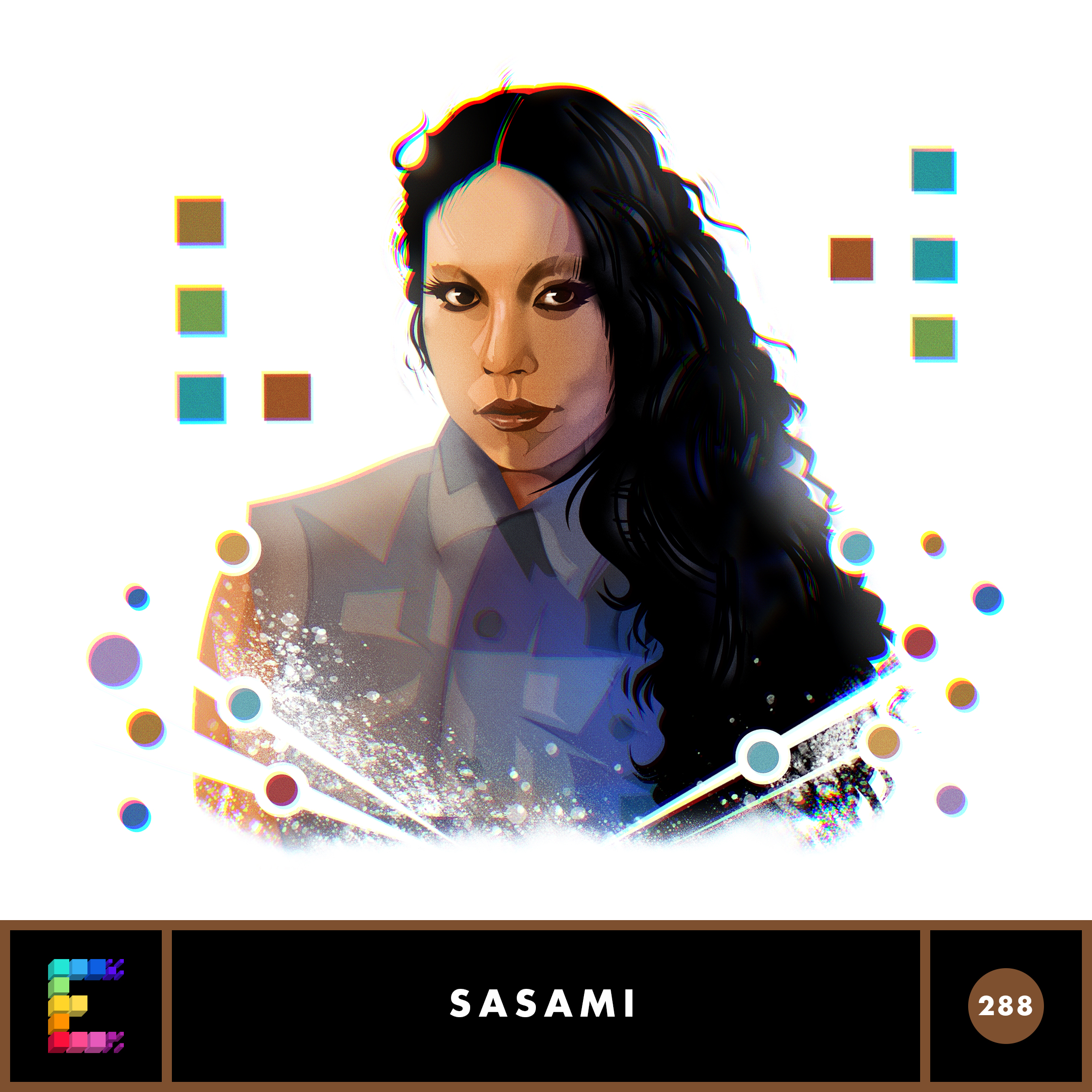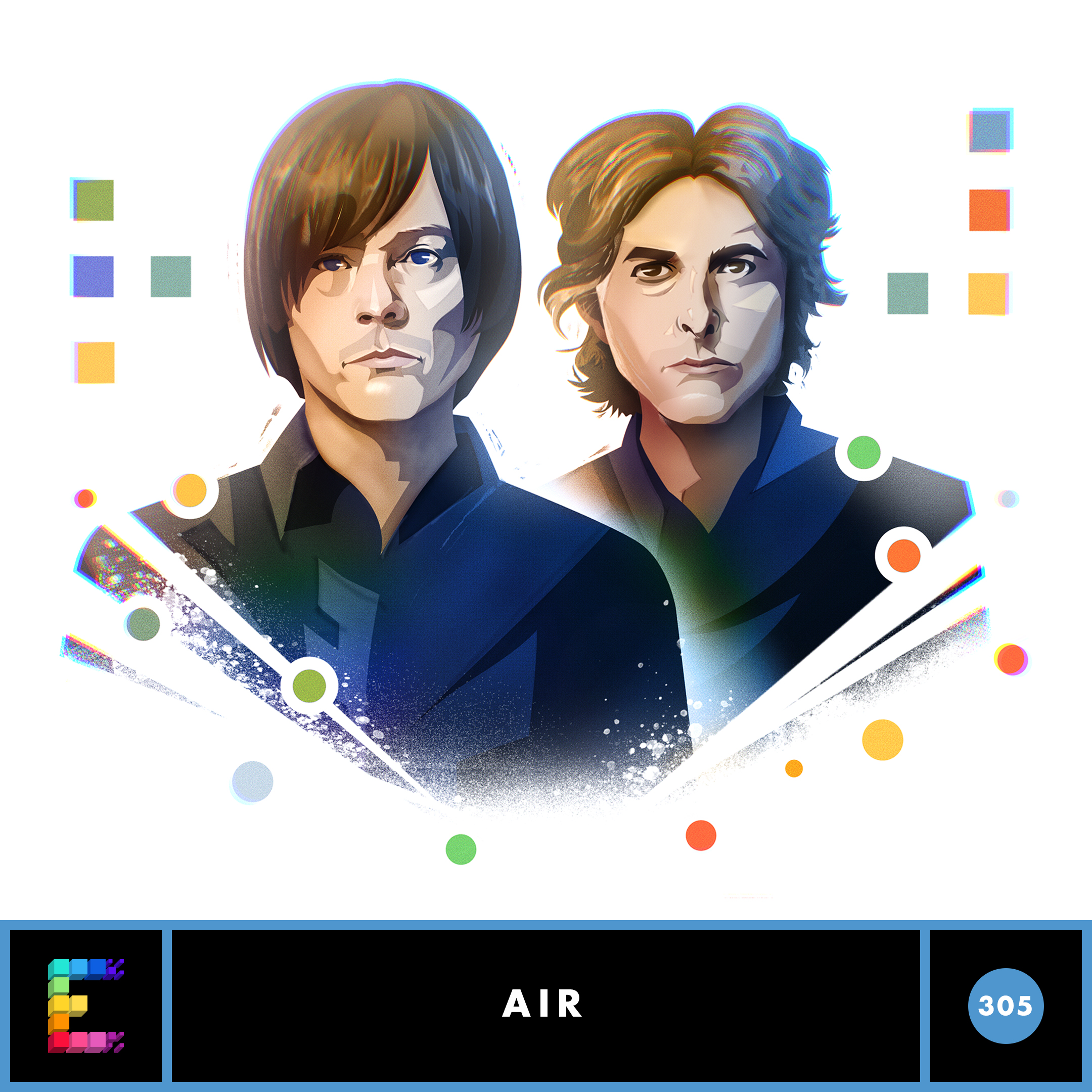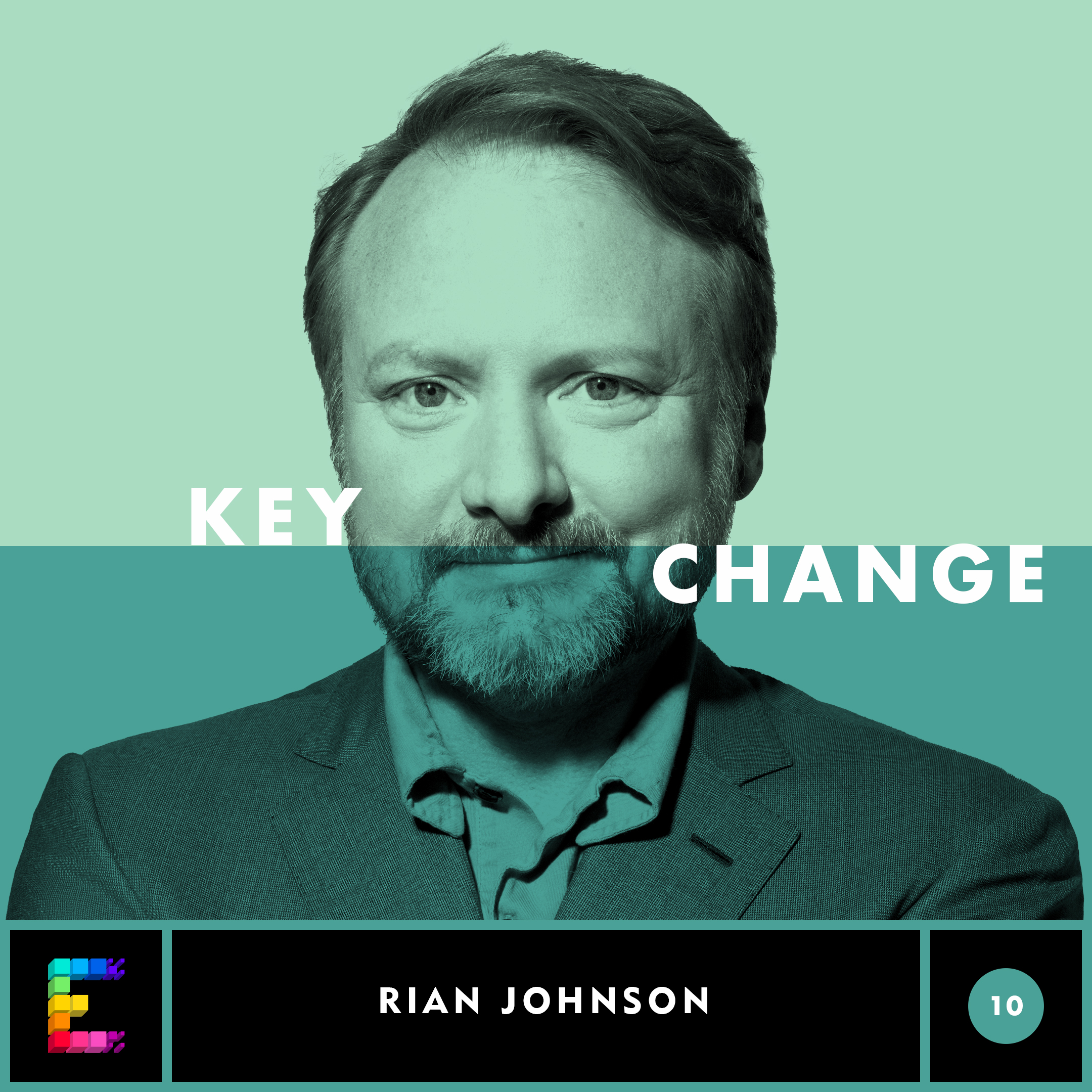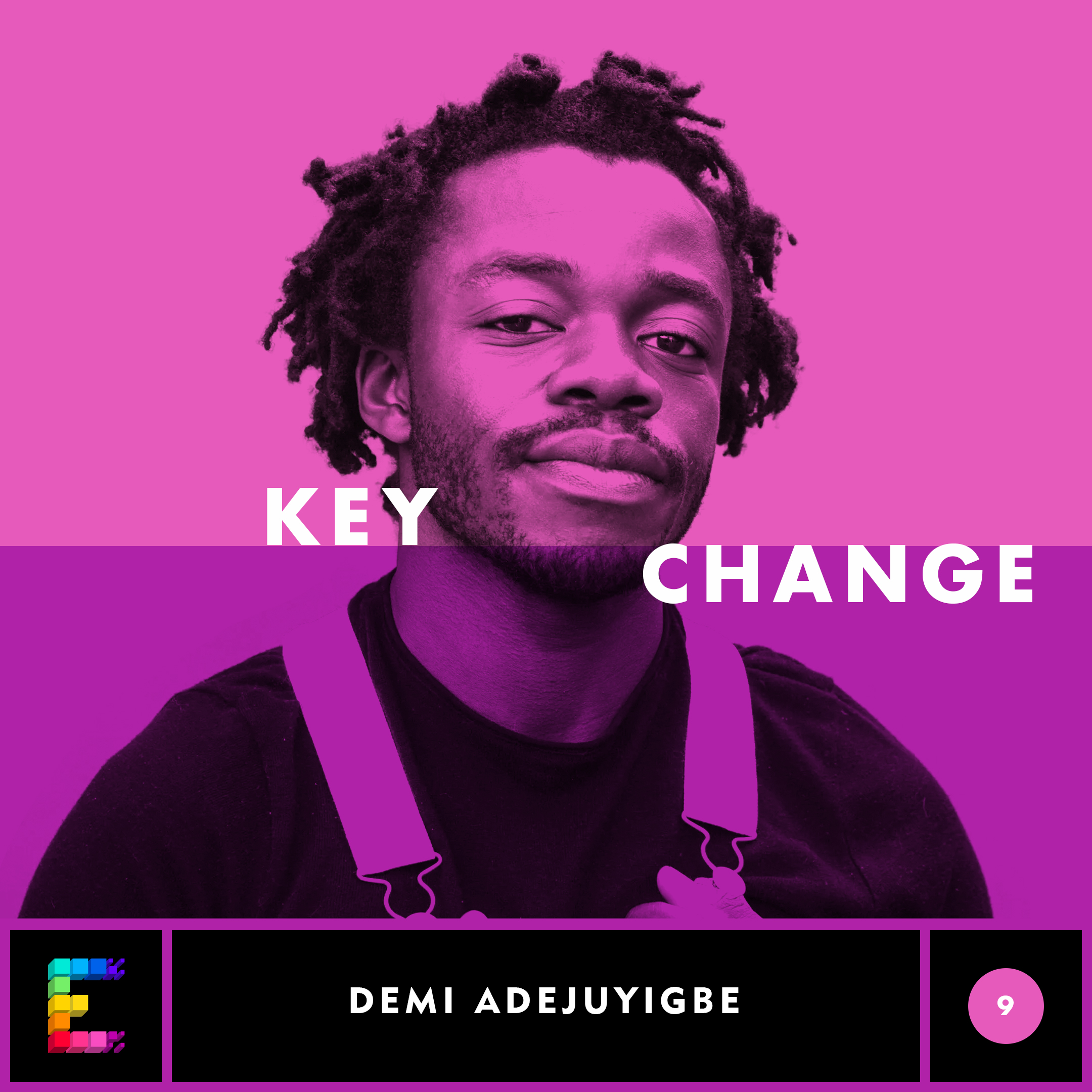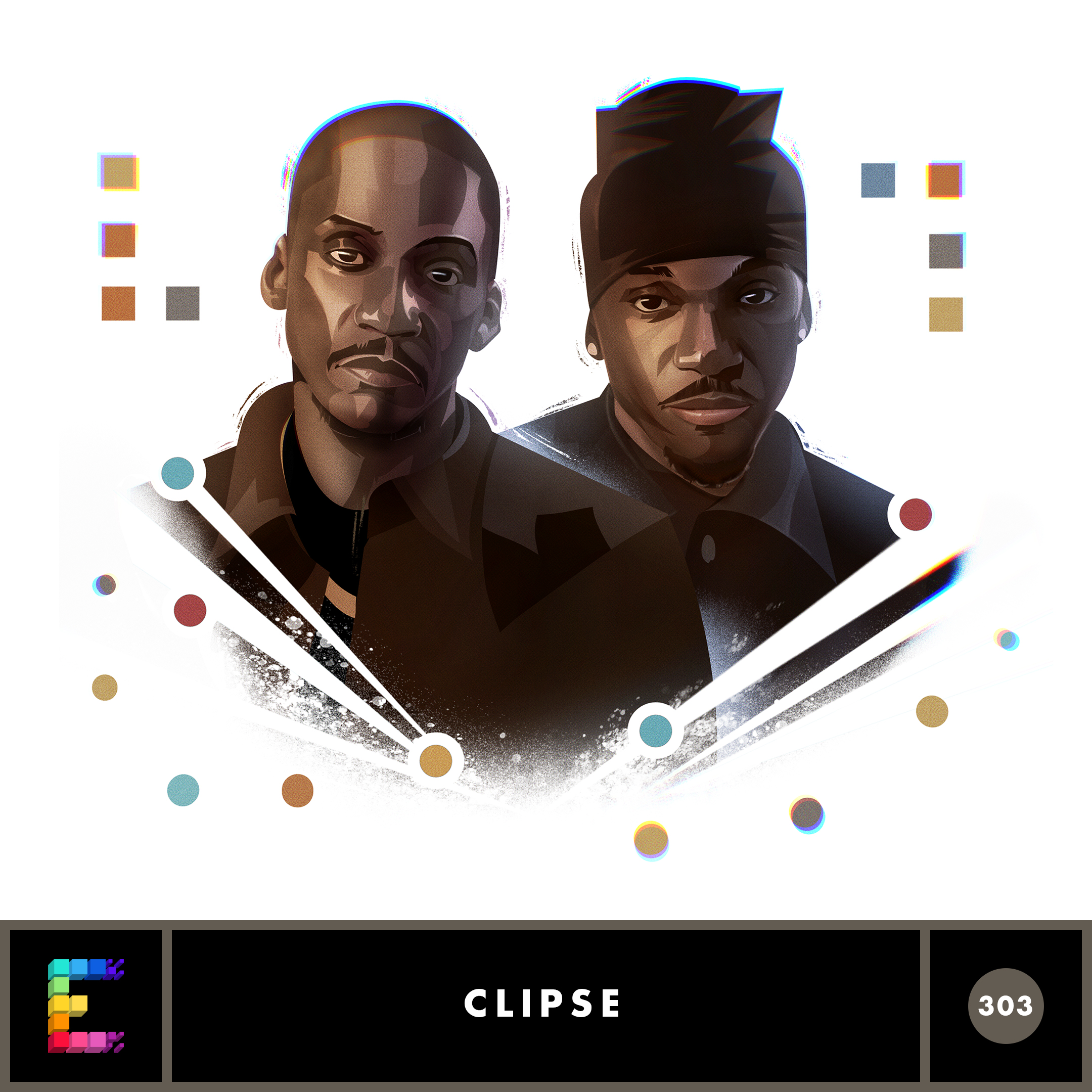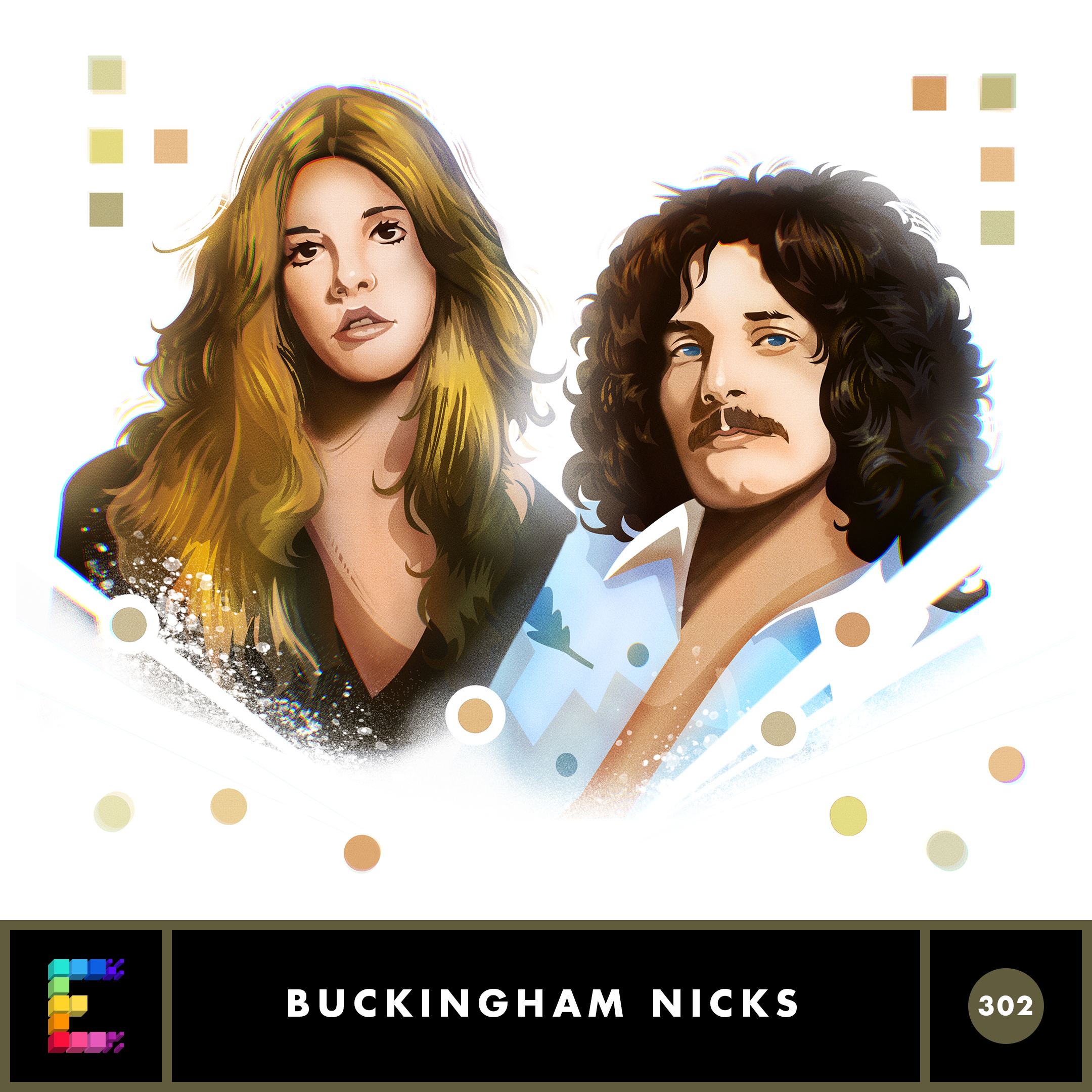Sasami - In Love With A Memory (feat. Clairo)
Sasami is a singer, songwriter and producer who grew up in Los Angeles. But now she’s based in Northern California, and as you’ll hear in this episode, that’s significant. Sasami went to school for classical French horn. She was in the band Cherry Glazerr, and she’s had a lot of collaborations with other artists on their projects and her own. Collaboration is at the heart of the song that I talked to her about for this episode. It’s called “In Love With A Memory,” and it features Clairo on vocals, and it was co-produced with Grammy-winning producer Rostam. The song is on Sasami’s third album, Blood on the Silver Screen, which is out March 2025. Coming up, you’ll hear the original voice memos that she recorded for this song back in the fall of 2022. You’ll also hear the demo she made in Garageband after that, and then how she and Rostam turned that demo into the final version, a duet with Clairo.
For more info, visit songexploder.net/sasami.
Press play and read along
Transcript
Speaker 1 You're listening to Song Exploder, where musicians take apart their songs and piece by piece tell the story of how they were made. I'm Rishi Kesh Hirway.
Speaker 2 Support for this podcast and the following message come from Sutter Health.
Speaker 2 From life-changing transplants to high blood pressure care, Sutter's team of doctors, surgeons, and nurses never miss a beat.
Speaker 2 And with cardiac specialty centers located in the community, patients can find personalized heart care that's close to home. Learn more at sutterhealth.org.
Speaker 1 Sasami is a singer, songwriter, and producer who grew up in Los Angeles, but now she's based in Northern California, and as you'll hear in this episode, that's significant.
Speaker 1 Sasami went to school for classical French horn. She was in the band Cherry Glazer, and she's had a lot of collaborations with other artists on their projects and her own.
Speaker 1 Collaboration is at the heart of the song that I talked to her about for this episode.
Speaker 1 It's called In Love with a Memory, and it features Claro on vocals, and it was co-produced co-produced with Grammy-winning producer Rostom.
Speaker 1 The song is on Sasami's third album, Blood on the Silver Screen, which is out in March 2025.
Speaker 1 Coming up, you'll hear the original voice memos that she recorded for the song back in the fall of 2022.
Speaker 1 You'll also hear the demo she made in GarageBand after that, and then how she and Rostom turned that demo into the final version, a duet with Claro.
Speaker 1 You can't go more and just live in love with a memory.
Speaker 1 All
Speaker 1 of me is yours. If you catch me as I go,
Speaker 1 if we only go backwards, then we'll never know.
Speaker 1 Can you tell me about the day that you first started writing this song?
Speaker 3 I was staying at my parents' house, and my mom was washing dishes, and she has this habit of when she's washing dishes to like sing.
Speaker 3 I think she studied like classical opera singing at some point when she was in high school.
Speaker 3 And then growing up, she would take me to these Korean norebong karaoke lounges and she would sing these old timey folk songs.
Speaker 3 And so now, every time she sings, it feels like this kind of portal back to that time, and it's really special.
Speaker 3 Just hearing her sing so beautifully
Speaker 3 kind of inspired me to work on a song that was kind of inspired by this old folky lounge style of singing.
Speaker 3 At the time, I was writing a lot on this baritone rubber bridge guitar because it has bass notes on it that are lower than a standard guitar, and so it kind of feels like pizzicato on like a jazz upright bass.
Speaker 3 The original demo of the song is just bass notes and the melody.
Speaker 1 So you're at your parents' house. Did you record this in your childhood bedroom?
Speaker 3 Yeah, in my childhood bedroom.
Speaker 1 What else was going on in your life at that time?
Speaker 3 At that time, I had just wrapped up touring the Squeeze album, which was largely inspired by New Metal, and I was touring that record with literally a metal band as my backing band.
Speaker 3 So I was spending a lot of time running around stage headbutting my bandmates and screaming in a way that's not how you're supposed to scream.
Speaker 3 Like there's a technically correct way of screaming in a metal band.
Speaker 3 I was screaming like I was being murdered, which you're only supposed to do when you're being murdered and not every day for months at a time.
Speaker 3 So at the end of that cycle, I was like, I really want to protect my voice and I want to make sure that this next crop of songs is vocal-centric and more nurturing to my vocal cords.
Speaker 3 That's the very first kind of sketch of the verse. So I had written that verse and what I had intended to be the chorus that day.
Speaker 1 What was your first thought about what you wanted to sing about?
Speaker 3 I think the very first lyric was, Take Me Back to the Endless Highway, or something like that.
Speaker 3
It just that Take Me Back has that kind of like lounge singer, like David Lynchian kind of single spotlight, smoky room energy. And the phrase, take me back, it's like literally nostalgic.
Yeah.
Speaker 3 So I knew that I wanted there to be a feeling of nostalgia, a feeling of timelessness.
Speaker 1 What was the rest of the story that came to you?
Speaker 3 I think I always thought of this as a duet between two characters.
Speaker 3 Both characters are kind of thinking back to the very genesis of a relationship and you're just driving all night and you're getting to know each other and you're talking and there's no friction yet.
Speaker 3 There's no tension yet. It's just completely cinematic, that original spark in a relationship where you're staying up all night and you feel like you're on an endless highway.
Speaker 3 Like you probably cancel everything you have the next day because you're hanging out with this person all night.
Speaker 3 And so one character is really holding on to these memories and trying to think about how can we get back to that feeling?
Speaker 3 Whereas the other character is like, it's okay that this is ending and it's okay that that was a period of our life, but I'm interested in getting back on the highway by myself.
Speaker 1 As you started thinking about the song more and developing the idea, where were those those thoughts happening?
Speaker 3 I was house sitting for my friends who live in Northern California in West Marin.
Speaker 3 And I remember that when I was up there house sitting, I felt so inspired and the songs just started like pouring out of me.
Speaker 3 I think it's just, I grew up in Los Angeles and I've always lived here except for when I went to college. And I was feeling kind of burnt out on being here.
Speaker 3 And maybe there's this feeling of creativity or like these stars or spirits that are like hanging above the atmosphere and there's only so many to pull down and maybe i was feeling like in los angeles there just weren't as many stars ready to be pulled down and it took me going to another place to really feel electrified by creativity and so that's when i jumped back into this song
Speaker 3 The process was always like I start on voice memos and then I open up GarageBand.
Speaker 3 I bought this like refurbished iPad from Walmart on tour in 2017 and I've written every like pretty much every single song I've ever released. The demo is on that.
Speaker 3 I'm super proficient at Pro Tools on my computer, but I just really like the quickness with which I can work on an iPad because it's so like manual and you can play the instruments with your hands and it does kind of feel like I'm just scribbling on a napkin, like I'm not being super precious with it.
Speaker 3 So I used an upright bass MIDI sound and I added a bunch of reverbs. So it actually is a pizzicatoed midi bass, like a midi upright.
Speaker 1 It is very David Lynch.
Speaker 3 Totally. If you listen to the drum machine part,
Speaker 3
it's not a loop at all. Like I actually just performed it.
Like my fingers are tapping like
Speaker 4 kick, kick, snare, kick, kick, snare, hat.
Speaker 3 You know what I mean? Like I'm literally playing it.
Speaker 3 During the making of my previous record? I got really into arpeggiated synth parts
Speaker 3
in my mind. Again, I was like, okay, I'm going to redo this on a real analog synth at some point, but it's kind of fun trying to create it on the iPad to just make things in a non-precious way.
Yeah.
Speaker 1 But when it came time to do your demo vocals, were you recording those into the iPad as well?
Speaker 3 Yeah, fully. Just like directly into the iPad.
Speaker 4 Take me back to the open world where the wind can blow in my hair and the sun can kiss my face. I need to feel alive.
Speaker 3 When you have a minimal item you get creative of how you use things and so it's like I have my way of distorting the vocals with like quote-unquote guitar pedal plug-ins.
Speaker 3 You just find ways to make things sound cool.
Speaker 3 Take me back
Speaker 4 to the endless highway
Speaker 4 where we could talk all night along to the light of day.
Speaker 4 These days, I'm begging you to tell me what's on your mind.
Speaker 3 The garage band, like the demo version, that was what I had worked on when I was like January of 2023 when I went up to Northern California, which ended up, I ended up staying up there and moving there like a couple weeks after that.
Speaker 1 And how did Rostom get involved?
Speaker 3 So in 2020, Heim had booked this big European festival tour and Alana was in that movie Licorice Pizza and she had to do this big promo tour.
Speaker 3 So they actually asked me to sub for her on this tour, which never happened because of the pandemic, but I did rehearsals with the band.
Speaker 3 And so I actually met Rasta in the capacity of him music directing those rehearsals.
Speaker 1 Do you remember reaching out to him about the idea of you two working together on your record and what that conversation was like?
Speaker 1 Because even though you two are friends and had met in this context, for me, it always feels like a scary moment.
Speaker 1 to actually do the thing where you reach out to someone and say, will you lend your talents to this thing of mine?
Speaker 3 I'm nervous about a lot of things. And there are a lot of things things about LA and the music industry and Hollywood that makes me uncomfortable.
Speaker 3 But when it comes to like making music together, I feel, I feel pretty like confident that people want to collaborate with me.
Speaker 3 So, and I don't know, I've like played on so many other people's projects. And so obviously Ross Time is a very well-known and successful producer, but it didn't feel like the super high-stakes thing.
Speaker 3 Yeah, I don't know. I think when it comes to music, I feel pretty like confident about my ability to match up with people in the studio.
Speaker 1 I love that.
Speaker 1 Even though we've only had like a couple of in-person conversations, you're always kind of
Speaker 1 without even intending to giving me a little pep talk.
Speaker 3 Well, it's, I think it's probably because I've learned that it's good to put yourself out there.
Speaker 3 And if the right people want to collaborate with you or have a relationship with you, they'll just immediately show that kind of energy and you have nothing to lose by putting yourself out there except for that.
Speaker 3 the time that you're wasting in not putting yourself out there.
Speaker 3 It's cool because Rostom went to Columbia and studied composition, and I went to Eastman studying classical French horn. So he and I kind of both have this classical history.
Speaker 3 And so when he and I started working on the song, he was like, I really want you to tap into your classical chops on this one.
Speaker 3 And he's like, I think it would actually be cool if on this song there's like an epic guitar solo.
Speaker 3 And then he like pulled out this MIDI keyboard and he was like, write something. And so I wrote the guitar solo on like a keyboard as if it was just like a classical composition.
Speaker 3 It really changed how I thought of the song. But when it came time to actually record the guitar, I was like, I don't even know if I can technically play this.
Speaker 3 I just knew that it was going to take like a virtuous guitar player to play.
Speaker 3 And so I had my guitarist Graham Brooks, who was in the metal band that was on tour with me, because he literally can play anything. And he recorded it and then sent the tracks back.
Speaker 3
That was when I had a little bit of demoitis. I was like, I actually almost love the MIDI guitar better.
So the final version is a blend of the MIDI guitar and the real guitar.
Speaker 1 My conversation with Sasami continues after this.
Speaker 1 I'm pretty active and I eat pretty well, so I've been operating under the idea that I'm basically healthy.
Speaker 1 But thanks to Function Health, whose sponsor song Exploder, I found out that actually a handful of biomarkers around my heart health are below what's considered normal.
Speaker 1 And with my family history and genetics, I really have to watch out for that.
Speaker 1 And I wouldn't have known about this if it weren't for Function, which is a health platform that gives you access and insights into all kinds of information about what's really happening inside your own body.
Speaker 1 They have over 100 tests that are included in your Function Health membership. So you can take proactive steps to learn more about specific areas of your own health.
Speaker 1 There's a saying, that which can be measured can be improved. And now that I can measure these biomarkers, I can improve them.
Speaker 1 So learn more and join by using the Song Exploder link at functionhealth.com/slash song exploder. The first thousand people to sign up will get a hundred dollar credit toward their membership.
Speaker 1 That's functionhealth.com slash song exploder, or use the code songexploder100 when you sign up to own your health.
Speaker 1 So you have these programmed drums from your iPad, but then you also added live drums? Yeah.
Speaker 3 Drew Tashin played the drums and he's a jazz drummer, so I think he has a really like musical touch to his drum playing.
Speaker 3 And there really is this different world that opens up when the live drums and the 12-string guitars come in. It feels like a different groove.
Speaker 3 Ross Dem has this kind of like slow groove on it.
Speaker 3 The electronic drums that I programmed, I thought were kind of like a lot more hip-hop sounding.
Speaker 3 So having this kind of like slow drum groove over it, I would have been nervous that it would slow the song down too much, but it just like grounds it.
Speaker 3 And it almost gives it this kind of like western like
Speaker 3 the like four on the floor gives it this kind of like western feeling with the tambourine. So yeah, it's it's a really special percussion groove there.
Speaker 3 And I probably wouldn't have thought of that on my own. It's hard for me to say that, but it's true.
Speaker 1 Yeah, as someone who produced their own records for so long, what was it like to let someone else into your music in this way?
Speaker 3 Well, it's interesting because, you know, I've produced my own records, but I've also produced Hand Habits record and King Tufts record. And I asked for so much trust in that process.
Speaker 3 There were so many times where if they had doubted me or didn't have the trust, we maybe never would have gone to the final version. And it was the same thing with working with Rostem.
Speaker 3 I was like, you know what? If I'm going to do this, I'm going to actually allow him to see his vision all the way through.
Speaker 3 So there are definitely times where we butt heads, but there is something really magical to collaborating with people and like letting your guard down.
Speaker 3 It was really like humbling and important for me to trust Rostam and trust the process and allow him to get to the end of the arrangement before I say anything.
Speaker 1 Besides the arrangement and the production, what about lyrics? Was that something that the two of you also talked about?
Speaker 3 I think the main thing that Rostem really helped me connect with in working on the lyrics was not being afraid of these super dramatic, histrionic statements.
Speaker 3 Like he really advocated for me using the lyric, we'll go for one more drive and even if we die, it's all right. You know, he was like, if you're going to say it, say it, babe.
Speaker 3 I'll never forget our love.
Speaker 3 Even if our time might be up,
Speaker 3 Let's go for one more drive, and even if we die,
Speaker 3 let's all ride.
Speaker 3 So, from the very first song that I wrote on the album, Ross Dam was really pushing me to be like, Don't be afraid to make these grand statements, these like dramatic professions.
Speaker 3 And that that's like why you work with queer people because queer people are like not afraid to go there. And sometimes it's campy and sometimes it's just true and deep.
Speaker 1 Do you think you're a dramatic person by nature?
Speaker 3
Definitely. I mean, the first genre, like my mother tongue in music is classical music.
And nothing is more dramatic than a Mozart opera.
Speaker 3 You know, people are all screwing each other and killing each other. And so I came from that genre of music where the drama is extremely amped up.
Speaker 1 I know you have in the lyrics these two different ways of looking at a relationship. How did you go from that to deciding that this would actually be a duet?
Speaker 3 Originally, I had written it from this perspective, the first character that's like longing to go back, but something really was drawing me into creating this second voice that was talking about going forward.
Speaker 3 And so at that point, when the lyrics had been written that way, I couldn't figure out how to make that one person. Like it didn't make sense.
Speaker 3 So I kind of knew that it had to be a song that had another voice on it.
Speaker 1 And was that an exciting idea?
Speaker 3 I feel like for me being a solo artist, I'm always looking for an opportunity to collaborate with especially other singers.
Speaker 3 Like that's the thing I miss the most being a solo artist is not being able to sing in harmony as much with another person.
Speaker 3 Like growing up being in choir and stuff, that was so special to be able to be a part of this greater chord. And so I'm always looking for some way to bring specifically another vocal timbre in.
Speaker 3 So when I felt this narrative opportunity to have literally another voice, I was like, I think this is the right thing to do, which is to find another vocal character.
Speaker 1 So how did you start to think about whose voice that would be? Who would represent that character?
Speaker 3 Well, because the song is so nostalgic, I was like, I definitely think it could be someone who sings jazz or sings in a genre that's quite timeless. And Clara's new music is really so timeless.
Speaker 3 Like there's a true timelessness and universality to her music and her voice too. And Clara and I have been friends and fans of each other for a long time.
Speaker 3 And I think we both were hoping that there would be some time that we could work on something together. So musically and personally, it really made a lot of sense.
Speaker 1 So which part did you ask her to sing?
Speaker 3 So my character is the one that's like, take me back to the endless highway where we could talk all night. And Claire's character is like.
Speaker 3
It doesn't take away from what we shared that I need to go and be alone out there. I tried to do what I thought was right.
Now I need to be where the air is wild while I'm alive.
Speaker 4
It doesn't take away from what we shared that I need to go and be alone out there. I try to do what I thought was right.
Now I need to be where the air is.
Speaker 3 Thelma and Louise was actually a huge influence on the story and the narrative of the album.
Speaker 1 And just in case anyone isn't already familiar with it, Thelma and Louise is an incredibly influential movie from 1991, starring Gina Davis and Susan Sarandon as the title characters.
Speaker 3 And they really represent this kind of like sisterhood and romance, but also this like tough, outlaw, denim-clad, dust-kicken energy.
Speaker 3 And I wanted that to be really imbued in the album, this combination of toughness and like complete babiness.
Speaker 3 And when I sent Claire the song, she wrote me back saying that she can just like picture being on the edge of this cliff and like seeing this expanse.
Speaker 3 And, you know, there's like this scene in Thelma Louise. Like I always visualized that.
Speaker 3 And so it was so special to have someone I'm collaborating with really like see that in the music without even being prompted in any way.
Speaker 3 That feeling of open, endless highway and open expanse of sky and unsuppressed possibility.
Speaker 1 Do you remember when you heard the vocals that she sent back for the first time?
Speaker 3 Yeah, I was at home and I was like listening to all the stems and just kind of swooning listening to it.
Speaker 3 It almost kind of felt like my version of writing an opera and getting like the most prized Metropolitan Opera lead soprano to sing the part that I wrote.
Speaker 3 So I mean, it's truly a dream come true to write a part and then have someone that you adore and admire so much sing the part.
Speaker 1 You said you wanted a voice that had a different timbre than your own. How would you characterize each of your voices?
Speaker 3 It's interesting because we do kind of have a similar timbre in some ways. Like we both sing in like a little bit of a hushed, warm way.
Speaker 3 So it does kind of feel like it's not like two completely disparate characters, but it really almost feels like, is it two characters or is it one person and like the ghost of a memory singing the other part?
Speaker 3 So it is kind of ambiguous in that sense, but it is very magical to hear our voices blend together.
Speaker 4 Take me back to the open road where the wind can blow in my hair and the sun can kiss my face. I need to feel
Speaker 4 all good things must come to an end.
Speaker 4
Don't cry, just come back to bed. Let me feel you one last time before we say goodnight.
goodnight.
Speaker 4 Do you remember when we first met?
Speaker 4 No past, no pain, or regret.
Speaker 4 Let's stay up all night long, like we did when we were high.
Speaker 4 I'll never forget our love,
Speaker 4 even if our time might be up.
Speaker 4 Let's go for one more drive, and even if we die.
Speaker 1 I know that authors say every character in a story that you write is you, but I wonder if you feel more connected to the person who's saying, I want to go back to this time in our relationship that was so beautiful.
Speaker 1 Or do you feel more like the person who's saying, it's time to move on?
Speaker 3 I feel like I was at a personal crossroads when I wrote the song and very much am both of those characters.
Speaker 3 And I think that's the super lucky special thing about being a songwriter is that you have this almost therapy-like experience where it's like you work through your own emotions while writing a song.
Speaker 3 And that's just such a unique privilege and pleasure that a songwriter gets to experience.
Speaker 3 I think that a lot of what I was reflecting on was leaving LA.
Speaker 3 Los Angeles being a place that's basically the capital of the entertainment and music industry and also being the place where my family lives makes it kind of like a safe relationship for me.
Speaker 3
Like it's like, why would you leave that? It's like, you've got a house and kids together. Like, there's no reason to leave that.
Like, that's a good thing you got going there.
Speaker 3 Yeah, maybe there is this kind of layer of metaphor there where me moving to a really far away place, there is this element of me letting go of something that is logical and safe and really taking a jump into the deep end.
Speaker 3 And, you know, when I wrote the original song, I was still in Los Angeles and wasn't planning to leave yet.
Speaker 3 And when I wrote the demo, when I was like on the next step, I was house-sitting in the place that I ended up moving to.
Speaker 3 And so you can literally see how I was inching towards this new highway and not being afraid to have this new experience.
Speaker 1 And now, here's In Love with a Memory by Sasami, featuring Claro in its entirety.
Speaker 1 Take me back
Speaker 1 to the endless highway
Speaker 1 where we could talk all night along to the light of day.
Speaker 1 These days, I'm begging you to tell me what's on your mind.
Speaker 1 All
Speaker 1 I need is to know what you want
Speaker 1 from me.
Speaker 1 You can't go more than just living in love with a memory.
Speaker 1 All
Speaker 1 of me is yours. If you catch me as I go,
Speaker 1 if we only go backwards, then we'll never know.
Speaker 1 Take me back to the open road where the wind can blow in my hair
Speaker 1 and the sun can kiss my face. I need to feel the love.
Speaker 1 All good things must come to an end.
Speaker 1 Don't cry, just come back to bed.
Speaker 1 Let me feel you one last time before we say goodnight.
Speaker 1
It doesn't take away from what we shared. That I need to go and be alone out there.
I tried to do what I thought was right. Now I need to be where the hair is.
Speaker 1 Whoa.
Speaker 1 Whoa, I'm
Speaker 1 love.
Speaker 1 Take me back to the open road where
Speaker 1 the wind can blow in my hair
Speaker 1 and the sun can kiss my face. I need to feel alive.
Speaker 1 All good things must come to an end.
Speaker 1 Don't cry, just come back to bed.
Speaker 1 Let me feel you on my spine before we say say goodnight.
Speaker 1 Take me back to the open road where the wind can blow in my hair
Speaker 1 and the sun can kiss my face. I need to feel in my eyes.
Speaker 1 All good things must come to mind.
Speaker 1 Don't cry, just come back to bed.
Speaker 1 Let me feel you on my side.
Speaker 1 Oh, and say goodnight.
Speaker 1 You remember when we first met?
Speaker 1 No past, no pain, no regret.
Speaker 1 Let's stay up all night long, like the daylight we'll hide. Seeker,
Speaker 1 I'll never forget our love,
Speaker 1 even if our time might be up.
Speaker 1 Let's go for one more drive, and even if we die,
Speaker 1 that's alright.
Speaker 1 Alright.
Speaker 1 To learn more, visit songexploder.net slash sasami. You'll find links to buy or stream In Love with a Memory, and you can watch the music video.
Speaker 1 And if you want to listen to more episodes after this, you might want to check out Claro's episode about the song Ale Wife, which was also produced by Rostom.
Speaker 1 And you can listen to Rostom's own episode about his song Bike Dream.
Speaker 1 This episode was produced by me with Craig Ely, Kathleen Smith, and Mary Dolan, and production assistant Tiger Biscuit.
Speaker 1 The episode artwork is by Carlos Lerma, and I made the show's theme music and logo. Special thanks to Andrew Thomas Wang.
Speaker 1 Song Exploder is a proud member of Radiotopia from PRX, a network of independent, listener-supported, artist-owned podcasts. You can learn more about all our shows at radiotopia.fm.
Speaker 1 If you'd like to hear more from me, you can sign up for my newsletter, which you can find on the Song Exploder website. You can also get a t-shirt or a sweatshirt at songexploder.net slash shirt.
Speaker 1 I'm Rishi Kesh Hirway.
Speaker 1 Thanks for listening.
Speaker 4 Radiotokia
Speaker 4 from PRX.
Speaker 1 This episode of Song Exploder is brought to you by Booking.com. Booking.ya.
Speaker 1 From vacation rentals to hotels across the US, Booking.com has the ideal stay for anyone, even for those who might seem impossible to please.
Speaker 1 Whether you're booking for yourself, your partner, your dad, your group of friends, whoever it is, you can find exactly what you're booking for at booking.com. Booking.com, booking.yeah.
Speaker 1 Book today on the site or in the app.
Speaker 1 This episode is brought to you by the new film Splitsville. It's a comedy about relationships and the messiness that comes with them, and it stars Dakota Johnson and Adria Arhona.
Speaker 1 It premiered at Cannes, where it got rave reviews, and it's distributed by Neon. And for me, that's huge because I trust Neon the way that I trust my favorite record labels.
Speaker 1 I will definitely check out anything that they put their name on. So I'm looking forward to seeing this.
Speaker 1 Splitsville is already playing now in select theaters, and it'll be playing everywhere on September 5th.
